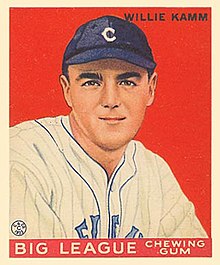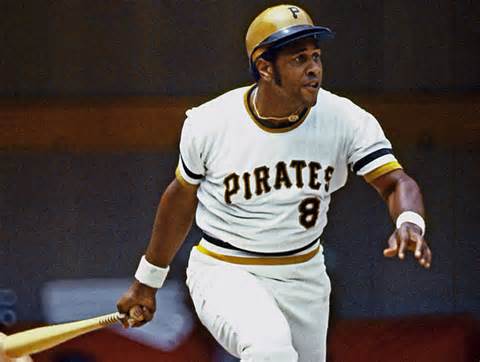Congratulations to the greatest catcher of all time not named Johnny Bench, the greatest (modern) lead off hitter of all time not named Rickey Henderson, and a top 5 first baseman of all time for their accomplishments, and induction. Here are a couple more of my reactions to the voting this year:
Trevor Hoffman and Vladimir Guerrero
422 members of the BBWAA submitted a ballot this year, and Trevor Hoffman was left only five ballots short of induction. He is basically a lock to go in next year, assuming voters who selected him this year continue to select him next year, and new voters select him at a high percentage (which they did last year). Likewise, Guerrero fell only 15 votes short in his first year on the ballot, and will very likely hear his name called next year. Both are deserving candidates, but I would argue there are players on the ballot at their respective positions who are getting far less support, yet are as, if not more, deserving...
Billy Wagner and Larry Walker
I could write a huge blog comparing Larry Walker and Vlad, but Fangraphs beat me to it so I'll leave it up to the pros. A few sparknotes for the lazy:
WAR: 68.7 (Walker) vs. 54.4 (Guerrero)
JAWS: 58.6 (Walker) vs. 50.2 (Guerrero)
Walker loses out on most counting stats (less HR, RBI, hits) but that is mostly because of a shorter career, and more time spent injured during his prime.
The Coors field effect is what is hurting Walker's vote totals (he received 21.9% last year, still a long ways away from induction). I wrote a blog detailing this more here, if anyone is interested. Point is, Larry Walker should be in the Hall of Fame, and his vote totals, while growing, do not appear to be heading that direction, which is a shame.
If you read my post last month where I talked about how I would handle voting for the 2017 HOF class, you saw that I narrowed my last vote down between Trevor Hoffman and Billy Wagner, and gave the edge to Hoffman despite some inferior numbers to Wagner (more info here). I still stand by that decision, but it is disheartening to see Hoffman earn 74% of the vote while Wagner gets 10.2%, when their careers are very close in merit. Had Hoffman gotten in this year, I think we would see an uptick in votes for Wagner, but since he did not I think a lot of voters will be in a similar position again next year. It's possible after Hoffman does go in that Wagner's totals will grow, but 75% seems like a pretty steep climb for the lefty. Maybe he will get some attention on the Veteran's Comittee years down the road.
The steady rise for Edgar Martinez
Edgar Martinez jumped up again this year, after going from 27% to 43% a year ago, he climbed again, this time all the way up to 58%, ahead of Bonds and Clemens, as well as Mike Mussina (51%, up from 43% last year) and Curt Schilling (45%, down from 51.3 last year). Edgar has two years left on the ballot, but is in almost the exact same position that recently inducted Tim Raines was in, who had 55% with two years remaining and got in this year with 86% of the vote. I think Edgar will climb again next year, likely into the mid to high 60's, and will finally hear his name called in 2019. It's too long to wait for the greatest DH of all time, but at least he will finally get what he deserves, a plaque in Cooperstown.
Mike Mussina has seen another large jump as well, and with six years still remaining on the ballot for him, I feel much more confident about his likelihood of receiving induction.
The rising vote totals for Bonds and Clemens indicate a shift in voter attitudes towards PED users, and could squeeze some deserving candidates off some ballots, as long as the 'rule of 10' still prevents voters from voting for more than 10 candidates. However, once they get inducted we should see many of the players who are hanging out on the ballot start to see their totals climb. Edgar and Mussina will make it, Schilling likely will as well, but guys like Fred McGriff, Jeff Kent, Gary Sheffield, and the above mentioned Larry Walker and Billy Wagner might be SOL. It also doesn't help a few of the deserving candidates who got bumped from the ballot after only one year, such as Jim Edmonds and Kenny Lofton (thankfully, there was no one in that category this year, as the highest vote getter under 5% was Jorge Posada, a fine player worthy of consideration, but not enshrinement). In my opinion, in order to avoid having a lot of deserving candidates out of the Hall, the Veteran's Committee is going to have to get busy adding some of the talent the BBWAA isn't able to vote in.
The class of 2018
With three new players going in this year, and one player (Lee Smith) falling off the ballot, quite a few voters have 3/4 new spots on their ballot for next year. At first glance, this is great news for the holdovers who need more votes, but a new class of first time eligible ballplayers next year is going to make that tough. Joining the ballot next year will be Chipper Jones, a near lock for first ballot induction, Jim Thome, whose 600+ home runs and lack of steroid suspicion should get him in, if not in one year than likely soon, Andrew Jones, an elite fielding center fielder with over 400 home runs, who would be a lock if he hadn't fallen apart in his 30's, but who still will gain some consideration, Scott Rolen, a sabermetrics darling who never quite reached the offensive milestones, but his defense and WAR will gain him votes by newer voters, and Omar Vizquel, the second greatest defensive SS of all time who also amassed over 2800 hits and 400 steals. Toss Johnny Damon and Johan Santana (who had a six year peak rivaling Sandy Koufax) into the frey and you have a very loaded, very challenging ballot to navigate.
I personally haven't decided exactly how I'll vote next year. I am gaining three slots on my ballot, but I know Chipper will get one, Thome will get another, and I think Vizquel/A. Jones/Santana are probably all deserving, and possibly Rolen as well. I also left McGriff/Wagner/Kent off my ballot last year, and still haven't voted for Bonds and Clemens. It will be tricky to determine which ten are most deserving from this ridiculous class. Who knows, maybe by December of next year the rule of 10 will be abolished, and I'll be able to toss all the names on the ballot I think are deserving, as well as first timer Jamie Moyer, who will hit the ballot next year.
Congrats again to Pudge, Bags and Rock, and I look forward to congratulating a few more candidates next year as well!
























